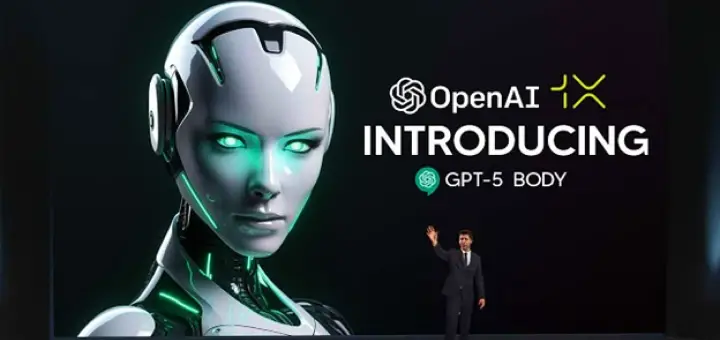In the rapidly evolving world of artificial intelligence, staying informed is crucial. This week, we’ve seen significant advancements from major tech players and important discussions at the governmental level. Let’s dive into the four biggest AI developments and what they mean for the future.
Meta's LLama 3.1: Open Source AI Takes a Leap Forward
Overview:
Meta, the company formerly known as Facebook, has released an update to their language model, LLama 3.1. This new version is part of the growing open source AI community, meaning its code is freely available for anyone to use, modify, or study. LLama 3.1 demonstrates marked improvements in understanding context and generating human-like text, putting it in competition with some of the top closed-source models from major tech companies. The new Llama 3.1 improves from 3.0 by having a larger context window and having tool-calling capabilities.
Importance:
The open source nature of LLama 3.1 is a game-changer in the AI world. It democratizes access to advanced AI technology, allowing researchers, developers, and even smaller companies to build upon and improve the model. This collaborative approach can accelerate innovation and potentially lead to breakthroughs that benefit everyone. Furthermore, the model is able to compete and outperform many of the major players in the closed source scene like ChatGPT and Claude.
What’s Next:
We can expect to see a surge of applications and improvements based on LLama 3.1. Developers worldwide will likely create specialized versions for various industries, from healthcare to education. This could lead to more diverse and tailored AI solutions, potentially challenging the dominance of closed-source models from big tech companies. Mark Zuckerberg also spoke about the importance of Llama 3.1 and what it means for the future here.
OpenAI's SearchGPT: Revolutionizing Internet Searches
Overview:
OpenAI, the company behind the popular ChatGPT, has introduced SearchGPT. This new AI tool is designed to enhance internet searches by providing direct answers to questions instead of a list of links. SearchGPT synthesizes information from multiple sources to offer comprehensive, conversational responses.
Importance:
SearchGPT could fundamentally change how we interact with and find information online. By providing direct answers, it saves users time and effort in sifting through multiple websites. This technology could make internet searches more intuitive and accessible, especially for those who struggle with traditional search engines. In addition, as a result of the announcement, Google’s stock took a major hit, as SearchGPT poses a major threat to existing search engines.
What’s Next:
As SearchGPT develops, we might see integration with existing search engines or standalone applications. There could be partnerships with content providers to ensure accuracy and up-to-date information. However, this technology also raises questions about the future of web traffic and how it might affect websites that rely on search engine traffic.

Mistral AI's New Model: Efficiency Meets Power
Overview:
Mistral AI, a relatively new player in the AI field, has released a powerful new language model. What sets this model apart is its ability to achieve impressive performance while being smaller and more efficient than many of its competitors.
Importance:
The efficiency of Mistral AI’s new model is significant for several reasons. It could lead to AI systems that require less computing power and energy, making advanced AI more accessible to organizations with limited resources. Additionally, more efficient AI is better for the environment, reducing the carbon footprint associated with training and running large language models.
What’s Next:
We can expect to see increased focus on developing efficient AI models. Mistral AI’s success might inspire other companies to prioritize efficiency alongside performance. This could lead to more AI applications on devices with limited processing power, such as smartphones or IoT devices, expanding AI’s reach in our daily lives.
US Hearings on AI with CEOs: Shaping the Future of AI Regulation
Overview:
The United States Congress held hearings with CEOs from major AI companies, such as Sam Altman (CEO of OpenAI), Mark Zuckerberg and Sundar Pichai (CEO of Alphabet/Google) to discuss the rapid advancement of AI technology and its potential impacts. These hearings covered crucial topics such as AI safety, ethical concerns, and the need for responsible development. View the entire hearing with Sam Altman here.
Importance:
These hearings are vital for informing policymakers about AI’s capabilities and risks. They play a crucial role in shaping future regulations that could govern AI development and deployment. By bringing together industry leaders and lawmakers, these discussions help ensure that AI benefits society while minimizing potential harm.
What’s Next:
Following these hearings, we might see proposals for new AI regulations or guidelines. There could be calls for increased transparency in AI development, mandatory safety testing, or ethical standards for AI applications. The outcomes of these discussions could have far-reaching effects on how AI is developed and used in the coming years.
This week’s developments in AI showcase the rapid pace of innovation in the field and the growing attention it’s receiving from policymakers. From open source advancements to efficient models and potential changes in how we search for information, AI continues to shape our digital landscape. As these technologies evolve, staying informed and engaged in the conversation about AI’s role in society becomes increasingly important for everyone.




